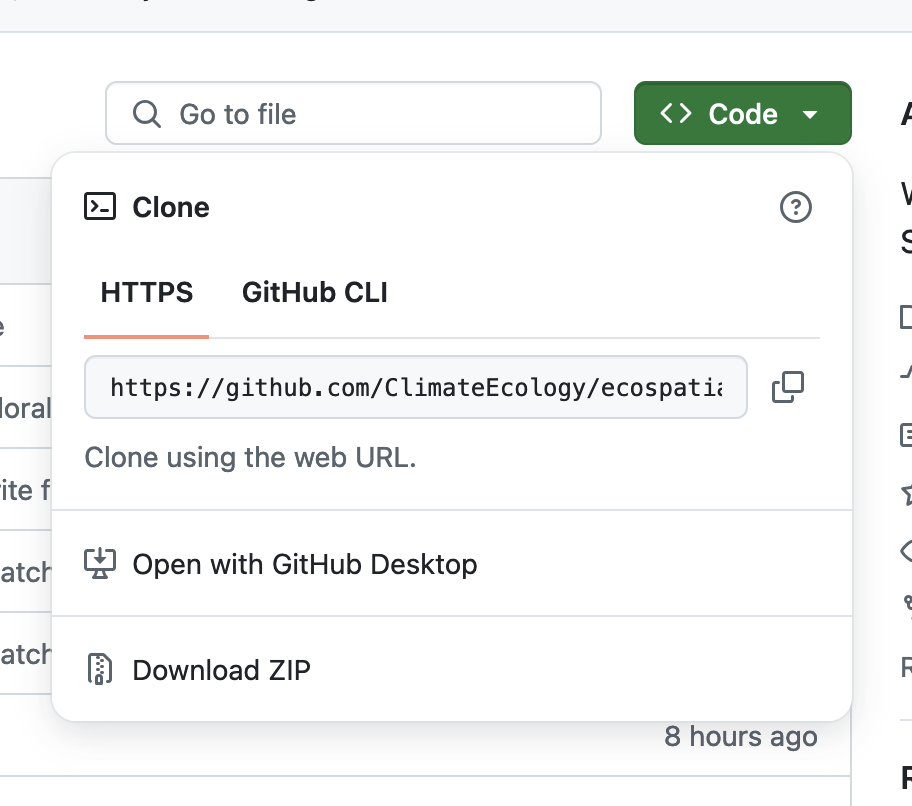Beescape Workshop
Introduction to the beeshiny data app
This website holds the material needed to recreate the workshop introducing beeshiny, which was held at the EcoSpatial Summit on Oct. 10-11, 2024. Beeshiny is a web-based tool that makes it easier to access the land use, habitat quality, weather and climate data currently featured in Beescape, another tool developed by Penn State University. Beescape can be used by beekeepers, gardeners, urban planners, growers, researchers, and land managers to assess the quality of their landscapes for supporting bees and other pollinators. Beeshiny is a researcher-focused complement to Beescape.
The workshop covered topics on how to use R to process GIS layers and tabular outputs downloaded from the beehiny app. The instructions for these tutorials are included as html files within the main repository directory.
Install R and RStudio
To run the content of this tutorial, please download the following programs:
Download the workshop repository
The repository with the workshop materials is located here: https://github.com/ClimateEcology/ecospatial-workshop
To download the contents of the repository, click on the green <> Code button and select Download ZIP. Unzip the downloaded zip file and save the folder to your computer.

Tutorial instructions
Within the ‘ecospatial-workshop’ folder, tutorial instructions for working with GIS data and tabular weather data are found in the files ‘EcoSpatial_Workshop_GIS.html’ and ‘EcoSpatial_Workshop_Weather.html’, respectively.
Install packages
With R and RStudio installed, open the file ‘ecospatial-workshop.Rproj’ in the downloaded folder. This starts RStudio. Within the console window in the lower left, run the following lines to install the R packages needed for this workshop.
install.packages("dplyr", dependencies = TRUE)
install.packages("ggplot2", dependencies = TRUE)
install.packages("sf", dependencies = TRUE)
install.packages("terra", dependencies = TRUE)
install.packages("tidyterra", dependencies = TRUE)
install.packages("SPEI", dependencies = TRUE)
install.packages("tidyr", dependencies = TRUE)